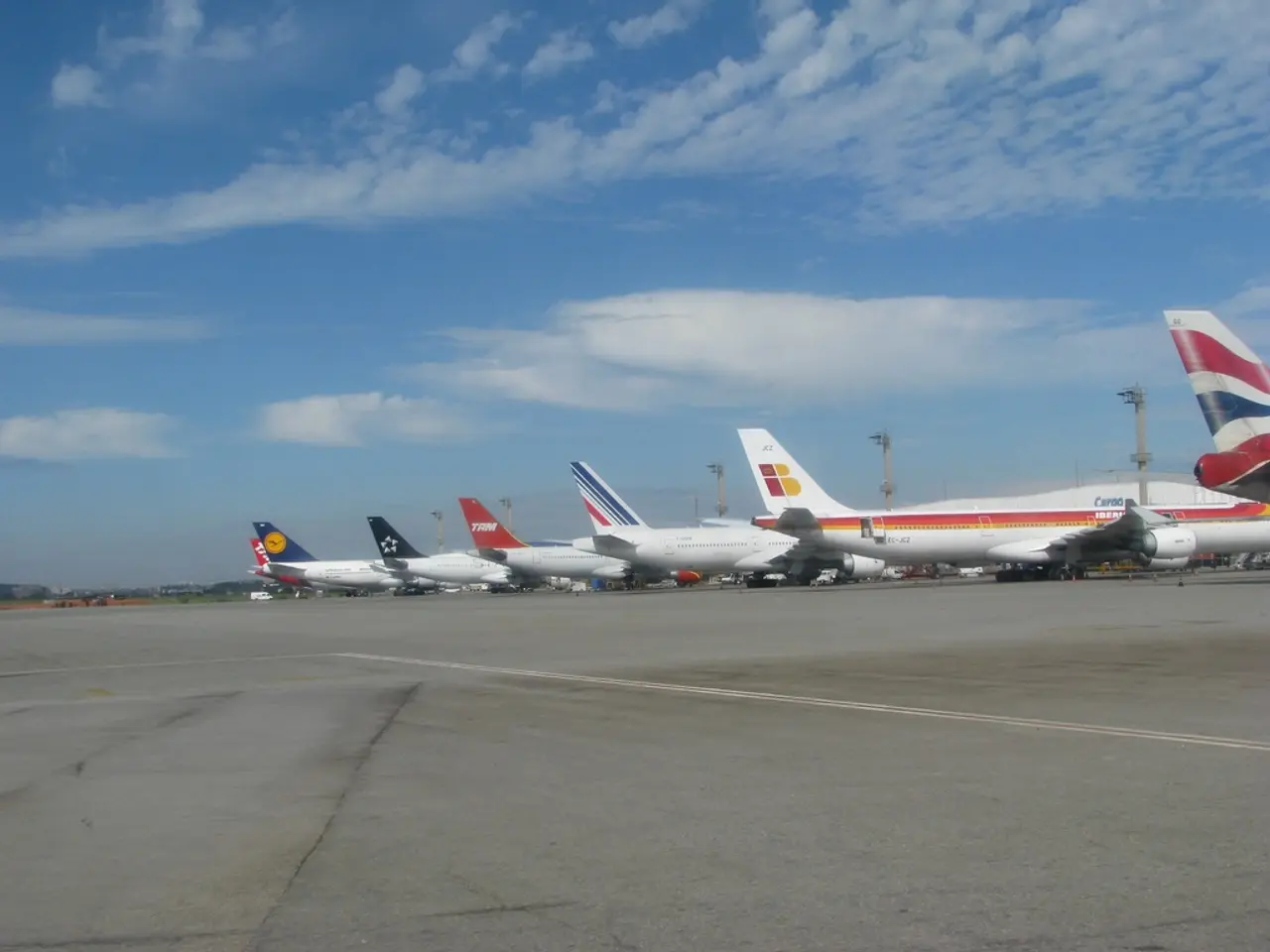Reduced aviation activity at BER: Costs cited as a driving factor by the association
In the first half of 2025, the number of passengers nationwide has grown by 2.8 percent, yet the aviation industry in Germany continues to grapple with challenges that have kept passenger numbers well below pre-pandemic levels.
The Federal Association of the Air Transport Industry (BDL) has been vocal about the impact of high location costs on the industry's recovery. Jens Bischof, President of the BDL, expressed concern about the industry's inability to reach pre-Corona passenger numbers, stating this on Monday.
The BDL's concerns could potentially affect the overall economic recovery of Germany, as the aviation sector plays a significant role in tourism and employment.
The decrease in flying in Germany is primarily due to high operating costs, stringent government regulations, and increased aviation taxes. These factors have led airlines, especially low-cost carriers like Ryanair, to reduce their presence and operations at many German airports.
Ryanair, a major low-cost carrier, announced the cessation of flights at Dortmund, Leipzig, and Dresden, and significant scaling back at Hamburg and Berlin airports, all due to these costs. The number of aircraft based in Germany has dropped from approximately 190 pre-pandemic to around 130 now, as carriers relocate to countries with more favorable conditions.
Regarding the status of German airports, the recovery is uneven. Berlin Brandenburg Airport (BER) now handles about 30% fewer passengers compared to when the former Tegel and Schönefeld airports operated in 2019. Domestic flight numbers remain especially weak, at roughly half of pre-pandemic levels.
Other European countries are recovering faster, some even exceeding their 2019 capacity levels, highlighting Germany's lag largely due to fiscal and regulatory burdens.
This situation poses risks to tourism, jobs, and Germany’s role as a major European hub. Calls from industry representatives for tax and regulatory reforms to improve competitiveness and support aviation recovery have been made, but the German government has yet to respond.
The BDL did not provide specific proposals for reducing the high location costs in Germany. However, the association's criticism has led to discussions about potential reforms in the German aviation industry.
In the second half of the year, the growth rate of passengers nationwide remains to be seen. The growth of 2.8 percent in passenger numbers in the first half of the year is lower than the overall global growth rate for air travel.
References:
[1] Deutsche Welle (2025). Germany's airports struggle to recover amid high costs and regulations. [online] Available at: https://www.dw.com/en/germany-s-airports-struggle-to-recover-amid-high-costs-and-regulations/a-59465250
[2] Reuters (2025). Ryanair to cut flights at several German airports. [online] Available at: https://www.reuters.com/business/aerospace-and-defense/ryanair-to-cut-flights-at-several-german-airports-2025-06-01/
[3] The Local (2025). German airports struggle to recover from pandemic slump. [online] Available at: https://www.thelocal.de/20250601/german-airports-struggle-to-recover-from-pandemic-slump
- The high location costs and stringent regulations in the aviation industry appear to be hindering Germany's economic recovery, as airlines like Ryanair have reduced their presence and operations in various German airports due to these factors.
- In the food and business sectors, the slow recovery of the aviation industry could potentially lead to reduced tourism and job losses, as the aviation sector has a significant impact on both industries.
- The finance industry may also be affected by the aviation industry's struggles, as the German government's delay in responding to calls for tax and regulatory reforms could impact the competitiveness and recovery of the aviation sector, potentially affecting Germany's overall economic growth.








